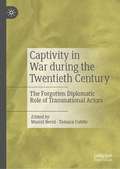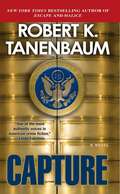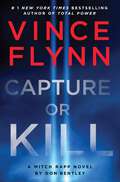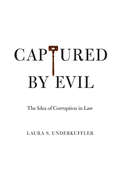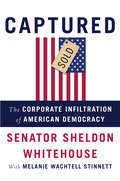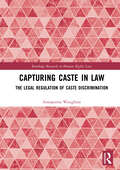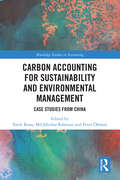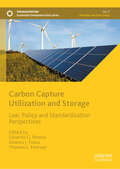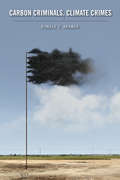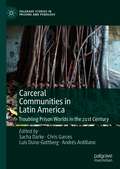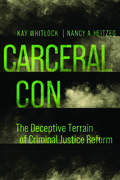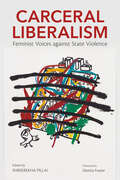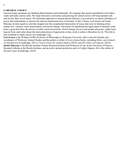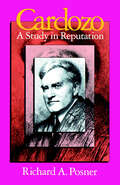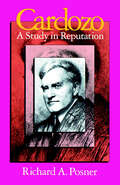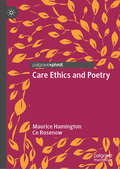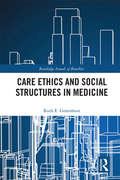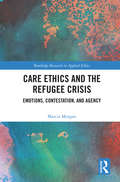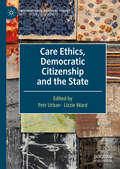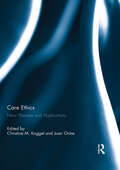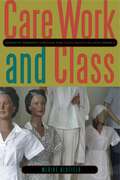- Table View
- List View
Captivity in War during the Twentieth Century: The Forgotten Diplomatic Role of Transnational Actors
by Marcel Berni Tamara CubitoThis book offers new international perspectives on captivity in wartime during the twentieth century. It explores how global institutions and practices with regard to captives mattered, how they evolved and most importantly, how they influenced the treatment of captives. From the beginning of the twentieth century, international organisations, neutral nations and other actors with no direct involvement in the respective wars often had to fill in to support civilian as well as military captives and to supervise their treatment. This edited volume puts these actors, rather than the captives themselves, at the centre in order to assess comparatively their contributions to wartime captivity. Taking a global approach, it shows that transnational bodies - whether non-governmental organisations, neutral states or individuals - played an essential role in dealing with captives in wartime. Chapters cover both the largest wars, such as the two World Wars, but also lesser-known conflicts, to highlight how captives were placed at the centre of transnational negotiations.
Capture (A Butch Karp-Marlene Ciampi Thriller #21)
by Robert K. TanenbaumWhen a rising starlet from Spanish Harlem dies from a gunshot wound in the fashionable downtown penthouse of an eccentric and famous Broadway producer, New York District Attorney Roger "Butch" Karp and his hard-charging, crime-fighting wife, Marlene Ciampi, smell drama. Karp is outraged at claims by the producer and his high-powered attorney that the "troubled" actress committed suicide. With the help of a fearful witness who Marlene convinces to speak out, Karp wages a relentless battle for justice against a notorious defendant, a legion of experts, and a barrage of hostile threats. Meanwhile, a shadowy international power group called the Sons of Man kidnaps Karp's daughter, Lucy, as she attempts to thwart the latest terrorist threat against New York City. Karp races to decode a baffling series of riddles left behind by the group's mastermind, his longtime enemy, to uncover the terrorists' true target and save Lucy from certain death. The key may lie within the fevered mind of David Grale, a half-mad religious vigilante who has mysteriously retreated beneath the city. Hunted by a beautiful but deadly Russian assassin, Karp and his eclectic band of accomplices must infiltrate the Sons of Man before the group's scheme for world dominion succeeds. But, little does Karp know: the clock is ticking down on New York City as an invisible force prepares to unleash Armageddon. With more than twelve million copies of his books in print, Robert K. Tanenbaum is a true "master of the legal thriller" (Vincent Bugliosi) whose yanked-from-the-headlines adventures keep readers rapt until each breathtaking conclusion.
Capture or Kill (A Mitch Rapp Novel #23)
by Vince Flynn Don BentleyPREORDER DENIED ACCESS, THE NEWEST PULSE-POUNDING THRILLER IN THE NEW YORK TIMES BESTSELLING MITCH RAPP SERIES, COMING THIS SEPTEMBER.As war looms in the Middle East, only Mitch Rapp can deliver truth and justice. 2011. On a remote mountaintop overlooking the remains of the Iranian nuclear weapons programme, Azad Ashani witnesses a Quds Force demonstration of a capability meant to upend America&’s war in the Middle East. Ashani, director of the Iranian Ministry of Intelligence and Security and Irene Kennedy&’s former back channel to the Iranian government, recognises the demonstration&’s true significance and the nation-ending conflict it will provoke. In Washington, DC, CIA director Irene Kennedy briefs the president that the operational window to kill or capture Osama bin Laden is rapidly closing. But before he&’ll authorise a commando raid on Pakistani soil, the president demands irrefutable proof of bin Laden&’s presence. Proof he trusts just one man to provide. Praise for the Mitch Rapp series &‘Grabs you by the scruff of the neck on page one and doesn&’t let you go until the end&’ Stephen Leather &‘Sizzles with inside information and CIA secrets&’ Dan Brown &‘A cracking, uncompromising yarn that literally takes no prisoners&’ The Times &‘Vince Flynn clearly has one eye on Lee Child's action thriller throne with this twist-laden story . . . instantly gripping&’ Shortlist &‘Action-packed, in-your-face, adrenalin-pumped super-hero macho escapist fiction that does exactly what it says on the label&’ Irish Independent &‘Mitch Rapp is a great character who always leaves the bad guys either very sorry for themselves or very dead&’ Guardian
Captured by Evil
by Laura S. UnderkufflerOne of the most powerful words in the English language, "corruption" is also one of the most troubled concepts in law. According to Laura Underkuffler, it is a concept based on religiously revealed ideas of good and evil. But the notion of corruption defies the ordinary categories by which law defines crimes—categories that punish acts, not character, and that eschew punishment on the basis of religion and emotion. Drawing on contemporary examples—including former assemblywoman Diane Gordon and former governor Rod Blagojevich—Underkuffler explores the implications and dangers of maintaining such an archaic concept at the heart of criminal law. "Underkuffler challenges the traditional rational and logical characterizations of corruption and defends a highly original and insightul proposal. In her view corruption is an emotional concept grounded in religious ideas defying traditional criminal law doctrines. This book is a fantastic contribution to the study of corruption as well as more generally to the study of law and culture. "—Alon Harel, Hebrew University Law School
Captured: The Corporate Infiltration of American Democracy
by Sheldon Whitehouse Melanie Wachtell StinnettIn Captured, U.S. Senator and former federal prosecutor Sheldon Whitehouse offers an eye-opening take on what corporate influence looks like today from the Senate Floor, adding a first-hand perspective to Jane Mayer’s Dark Money. Americans know something is wrong in their government. Senator Whitehouse combines history, legal scholarship, and personal experiences to provide the first hands-on, comprehensive explanation of what's gone wrong, exposing multiple avenues through which our government has been infiltrated and disabled by corporate powers. Captured reveals an original oversight by the Founders, and shows how and why corporate power has exploited that vulnerability: to strike fear in elected representatives who don’t "get right” by threatening million-dollar "dark money" election attacks (a threat more effective and less expensive than the actual attack); to stack the judiciary—even the Supreme Court—in "business-friendly" ways; to "capture” the administrative agencies meant to regulate corporate behavior; to undermine the civil jury, the Constitution's last bastion for ordinary citizens; and to create a corporate "alternate reality" on public health and safety issues like climate change. Captured shows that in this centuries-long struggle between corporate power and individual liberty, we can and must take our American government back into our own hands.
Capturing Caste in Law: The Legal Regulation of Caste Discrimination (Routledge Research in Human Rights Law)
by Annapurna WaughrayThis book will examine the legal regulation of caste discrimination in three key legal spheres: in India (the world’s largest caste-affected country and the country with the greatest experience of using law to tackle such discrimination); in international human rights law; and in Britain, the first European country to introduce a prohibition of caste discrimination in domestic equality law. It aims to present a coherent account of the role of law initially in the construction of caste inequality and discrimination, and subsequent legal efforts to address such discrimination. The gaps in existing law, domestic and international, in relation to caste discrimination will be identified and examined. The book will adopt a jurisdiction by jurisdiction / sphere by sphere approach which in practice is broadly chronological approach. First it will examine how the concept of caste and the phenomenon of discrimination and inequality on grounds of caste have been defined, constructed and addressed by law. It will trace the evolution of the religious, social and legal rationales for caste discrimination in India, and conversely the evolution in India of legal remedies for its elimination. Caste is a complex social phenomenon, and this book will explain and address the legal challenges of capturing caste in national and international law. In doing so it will examine the advantages and limitations of existing legal analyses and frameworks for tackling discrimination based on caste. The book will be of great interest to academics and students of human rights law, equality and discrimination law, international human rights law, minority rights and area studies (South Asia and its diaspora). It will also be of relevance to practitioners and those in the public and NGO sectors involved in the implementation and enforcement of equality law in the UK.
Carbon Accounting for Sustainability and Environmental Management: Case Studies from China (Routledge Studies in Accounting)
by Tarek Rana Peter Öhman Md Jahidur RahmanAs the world increasingly focuses on sustainability and climate justice, this book sets the scene by establishing the significance of carbon accounting in today’s environmental management practices.It provides a comprehensive exploration of the subject, with a specific focus on the Chinese context and sheds light on how carbon accounting practices are being integrated into corporate and national strategies. While the book has a strong focus on empirical realities in China, its exploration of carbon accounting and environmental management holds international importance. The book bridges the gap between theory and practice, offering readers in-depth insights into the intricate dynamics of carbon accounting and its implications for sustainable development, drawing on data and case studies to provide practical insights into the effectiveness of various carbon accounting approaches and their impact on environmental sustainability. It focuses on the crucial role of the development of green accounting, its future growth, and its wider impact on climate change. Additionally, the book examines how accurate tracking and reporting of carbon emissions are integral to developing effective environmental strategies and evolving environmental policies. Accompanied by real-world case studies and actionable recommendations, this book is a valuable resource for anyone navigating the intricate landscape of carbon accounting and reporting, offering a road map to informed strategic decision-making and sustainable business practices.It will be particularly beneficial for professionals in environmental management, policy formulation, and corporate sustainability, as it translates complex carbon accounting concepts into tangible, practical strategies.
Carbon Capture Utilization and Storage: Law, Policy and Standardization Perspectives (Sustainable Development Goals Series)
by Eduardo G. Pereira Alberto J. Fossa Thomas L. MuinzerThis book delves into how carbon capture, utilization, and storage (CCUS) technologies might help accelerate the worldwide transition to sustainable energy while meeting Paris Agreement targets. This comprehensive handbook examines how governments, businesses, and society may effectively implement CCUS programs to cut carbon emissions and promote economic development. The book begins with basic ideas and exposes readers to CCUS technologies and their critical role in reaching net-zero emissions by 2050. It investigates successful CCUS installations from various countries and suggests prospects for host governments and energy firms. The book combines technical innovation and carbon neutrality initiatives, while also addressing regulatory frameworks and normative factors that are critical for wider acceptance. With climate change mitigation at its core, the book offers pragmatic recommendations for policymakers and industry leaders on how to employ CCUS for sustainable development, making it a valuable resource for environmental researchers, energy professionals, and policymakers working toward a low-carbon economy.
Carbon Criminals, Climate Crimes (Critical Issues in Crime and Society)
by Ronald C. KramerCarbon Criminals, Climate Crimes analyzes the looming threats posed by climate change from a criminological perspective. It advances the field of green criminology through a examination of the criminal nature of catastrophic environmental harms resulting from the release of greenhouse gases. The book describes and explains what corporations in the fossil fuel industry, the U.S. government, and the international political community did, or failed to do, in relation to global warming. Carbon Criminals, Climate Crimes integrates research and theory from a wide variety of disciplines, to analyze four specific state-corporate climate crimes: continued extraction of fossil fuels and rising carbon emissions; political omission (failure) related to the mitigation of these emissions; socially organized climate change denial; and climate crimes of empire, which include militaristic forms of adaptation to climate disruption. The final chapter reviews policies that could mitigate greenhouse gas emissions, adapt to a warming world, and achieve climate justice.
Carceral Communities in Latin America: Troubling Prison Worlds in the 21st Century (Palgrave Studies in Prisons and Penology)
by Sacha Darke Chris Garces Luis Duno-Gottberg Andrés AntillanoThis book gathers the very best academic research to date on prison regimes in Latin America and the Caribbean. Grounded in solid ethnographic work, each chapter explores the informal dynamics of prisons in diverse territories and countries of the region – Venezuela, Brazil, Bolivia, Honduras, Nicaragua, Colombia, Puerto Rico, Dominican Republic – while theorizing how day-to-day life for the incarcerated has been forged in tandem between prison facilities and the outside world. The editors and contributors to this volume ask: how have fastest-rising incarceration rates in the world affected civilians’ lives in different national contexts? How do groups of prisoners form broader and more integrated ‘carceral communities’ across day-to-day relations of exchange and reciprocity with guards, lawyers, family, associates, and assorted neighbors? What differences exist between carceral communities from one national context to another? Last but not least, how do carceral communities, contrary to popular opinion, necessarily become a productive force for the good and welfare of incarcerated subjects, in addition to being a potential source of troubling violence and insecurity? This edited collection represents the most rigorous scholarship to date on the prison regimes of Latin America and the Caribbean, exploring the methodological value of ethnographic reflexivity inside prisons and theorizing how daily life for the incarcerated challenges preconceptions of prisoner subjectivity, so-called prison gangs, and bio-political order.Sacha Darke is Senior Lecturer in Criminology at University of Westminster, UK, Visiting Lecturer in Law at University of São Paulo, Brazil, and Affiliate of King’s Brazil Institute, King’s College London, UK.Chris Garces is Research Professor of Anthropology at Universidad San Francisco de Quito, Ecuador, and Visiting Lecturer in Law at Universidad Andina Simón Bolivar, Ecuador.Luis Duno-Gottberg is Professor at Rice University, USA. He specializes in Caribbean culture, with emphasis on race and ethnicity, politics, violence, and visual culture.Andrés Antillano is Professor in Criminology at Universidad Central de Venezuela, Venezuala.
Carceral Con: The Deceptive Terrain of Criminal Justice Reform
by Kay WhitlockA critical examination of how contemporary criminal justice reforms expand rather than shrink structurally violent systems of policing, surveillance, and carceral control in the United States. Public opposition to the structural racist, gendered, and economic violence that fuels the criminal legal system is reaching a critical mass. Ignited by popular uprisings, protests, and campaigns against state violence, demands for transformational change have escalated. In response, a now deeply entrenched so-called bipartisan industry has staked its claim to the reform terrain. Representing itself as a sensible bridge across bitterly polarized political divides and party lines, the bipartisan reform industry has sought to control the nature and scope of local, state, and federal reforms. Along the way, it creates an expanding web of neoliberal public-private partnerships, with the promotion and implementation of efforts managed by billionaires, public officials, policy factories, foundations, universities, and mega nonprofit organizations. Yet many bipartisan reforms constitute deceptive sleights of hand that not only fail to produce justice but actively reproduce structural racial and economic inequality. Carceral Con pulls the veil away from the reform public relations machine, providing a riveting overview of the repressive US carceral state and a critical examination of the reform terrain, quagmires, and choices that face us. This book vividly illustrates how contemporary bipartisan reform agendas leave the structural apparatus of mass incarceration intact while widening the net of carceral control and surveillance. Readers are also provided with information and insights useful for examining the likely impacts of reforms today and in the future. What can we learn from reforms of the past? What strategies hold most promise for dismantling structural inequalities, corporate control, and state violence? What approaches will reduce reliance on carceral control and also bring about community safety? Utilizing an abolitionist lens, Carceral Con makes the compelling case for liberatory approaches to envisioning and creating a just society.
Carceral Liberalism: Feminist Voices against State Violence (Dissident Feminisms)
by Alka Kurian Tria Blu Wakpa Cassandra D Little Shailza Sharma Joanna Eleftheriou Beth Matusoff Merfish Francisco Arguelles Paz y Puente Autumn Elizabeth Zarinah Agnew D Coulombe Jennifer Musial Maria F Curtis Marta Romero-DelgadoOne of Ms. Magazine's Most Anticipated Books of 2023 Carceral liberalism emerges from the confluence of neoliberalism, carcerality, and patriarchy to construct a powerful ruse disguised as freedom. It waves the feminist flag while keeping most women still at the margins. It speaks of a post-race society while one in three Black men remain incarcerated. It sings the praises of capital while the dispossessed remain mired in debt. Shreerekha Pillai edits essays on carceral liberalism that continue the trajectory of the Combahee River Collective and the many people inspired by its vision of feminist solidarity and radical liberation. Academics, activists, writers, and a formerly incarcerated social worker look at feminist resurgence and resistance within, at the threshold of, and outside state violence; observe and record direct and indirect forms of carcerality sponsored by the state and shaped by state structures, traditions, and actors; and critique carcerality. Acclaimed poets like Honorée Fanonne Jeffers and Solmaz Sharif amplify the volume’s themes in works that bookend each section. Cutting-edge yet historically grounded, Carceral Liberalism examines an American ideological creation that advances imperialism, anti-blackness, capitalism, and patriarchy. Contributors: Maria F. Curtis, Joanna Eleftheriou, Autumn Elizabeth and Zarinah Agnew and D Coulombe, Jeremy Eugene, Demita Frazier, Honorée Fanonne Jeffers, Alka Kurian, Cassandra D. Little, Beth Matusoff Merfish, Francisco Argüelles Paz y Puente, Shreerekha Pillai, Marta Romero-Delgado, Ravi Shankar, Solmaz Sharif, Shailza Sharma, Tria Blu Wakpa and Jennifer Musial, Javier Zamora
Carceral Logics: Human Incarceration and Animal Captivity
by Lori Gruen Justin MarceauCarceral logics permeate our thinking about humans and nonhumans. We imagine that greater punishment will reduce crime and make society safer. We hope that more convictions and policing for animal crimes will keep animals safe and elevate their social status. The dominant approach to human-animal relations is governed by an unjust imbalance of power that subordinates or ignores the interest nonhumans have in freedom. <p><p>In this volume Lori Gruen and Justin Marceau invite experts to provide insights into the complicated intersection of issues that arise in thinking about animal law, violence, mass incarceration, and social change. Advocates for enhancing the legal status of animals could learn a great deal from the history and successes (and failures) of other social movements. Likewise, social change lawyers, as well as animal advocates, might learn lessons from each other about the interconnections of oppression as they work to achieve liberation for all. This title is also available as Open Access on Cambridge Core.
Cardiovascular Disability: Updating the Social Security Listings
by Institute of Medicine Board on the Health of Select Populations Committee on Social Security Cardiovascular Disability CriteriaThe Social Security Administration (SSA) uses a screening tool called the Listing of Impairments to identify claimants who are so severely impaired that they cannot work at all and thus immediately qualify for benefits. In this report, the IOM makes several recommendations for improving SSA's capacity to determine disability benefits more quickly and efficiently using the Listings.
Cardozo: A Study in Reputation
by Richard A. PosnerWhat makes a great judge? How are reputations forged? Why do some reputations endure, while others crumble? And how can we know whether a reputation is fairly deserved? In this ambitious book, Richard Posner confronts these questions in the case of Benjamin Cardozo. The result is both a revealing portrait of one of the most influential legal minds of our century and a model for a new kind of study—a balanced, objective, critical assessment of a judicial career. "The present compact and unflaggingly interesting volume . . . is a full-bodied scholarly biography. . . .It is illuminating in itself, and will serve as a significant contribution."—Paul A. Freund, New York Times Book Review
Cardozo: A Study in Reputation
by Richard A. PosnerWhat makes a great judge? How are reputations forged? Why do some reputations endure, while others crumble? And how can we know whether a reputation is fairly deserved? In this ambitious book, Richard Posner confronts these questions in the case of Benjamin Cardozo. The result is both a revealing portrait of one of the most influential legal minds of our century and a model for a new kind of study—a balanced, objective, critical assessment of a judicial career. "The present compact and unflaggingly interesting volume . . . is a full-bodied scholarly biography. . . .It is illuminating in itself, and will serve as a significant contribution."—Paul A. Freund, New York Times Book Review
Care Aesthetics: For artful care and careful art
by James ThompsonWhat if the work of a nurse, physio, or homecare worker was designated an art, so that the qualities of the experiences they create became understood as aesthetic qualities? What if the interactions created by artists, directors, dancers, or workshop facilitators were understood as works of care? Care Aesthetics is the first full-length book to explore these questions and examine the work of carer artists and artist carers to make the case for the importance of valuing and supporting aesthetically caring relations across multiple aspects of our lives. Theoretically and practically, the book outlines the implications of care aesthetics for the socially engaged arts field and health and social care, and for acts of aesthetic care in the everyday. Part 1 of the book outlines the approaches to aesthetics and to care theory that are necessary to make and defend the concept of care aesthetics. Part 2 then tests this through practice, examining socially engaged arts and health and social care through its lens. It makes the case for careful art exploring the implications of care aesthetics for participatory or applied arts. Then it argues for artful care and how an aesthetic orientation to care practices might challenge some of the inadequacies of contemporary care. This is a vital, paradigm-shifting book for anyone engaged with socially engaged arts or social and health care practices on an academic or professional level.
Care Ethics and Poetry
by Maurice Hamington Ce RosenowCare Ethics and Poetry is the first book to address the relationship between poetry and feminist care ethics. The authors argue that morality, and more specifically, moral progress, is a product of inquiry, imagination, and confronting new experiences. Engaging poetry, therefore, can contribute to the habits necessary for a robust moral life—specifically, caring. Each chapter offers poems that can provoke considerations of moral relations without explicitly moralizing. The book contributes to valorizing poetry and aesthetic experience as much as it does to reassessing how we think about care ethics.
Care Ethics and Social Structures in Medicine (Routledge Annals of Bioethics)
by Ruth E. GroenhoutThis book examines the central structures in medicine—medical knowledge, economics, technological innovation, and medical authority—from the perspective of an ethics of care. The author analyzes each of these structures in detail before considering the challenges they present to end of life care. The perspective of an ethics of care allows for a careful focus on how these structures affect the capacity of the health care system to provide the care patients need, on the impact they have on the relationships between patients and care-givers, and on how they affect the care-givers in terms of their own sense of identity and capacity for care. This book offers one of the first focused discussions of an ethics of care across a wide range of social issues and structures in contemporary medicine. It will be of keen interest to advanced students and scholars in bioethics and health care ethics who are interested in these important issues.
Care Ethics and the Refugee Crisis: Emotions, Contestation, and Agency (Routledge Research in Applied Ethics)
by Marcia MorganThis book advocates for the philosophical import of care in re-evaluating problems of humanitarianism in the context of the ongoing international refugee and forced migration situation. In doing so, it rethinks the human capacity to care about the suffering of distant others. At a time when emotional resources are running low, there is a need to recast what it means to care, with the aim of generating a productive movement against the rise of value fundamentalism globally—embraced in mantras of ‘good and evil’ and ‘us and them’—and to confront xenophobia and oppressive politics. The author draws upon a wide array of rich traditions, including historical and contemporary writings on self-care and care of the other, to re-examine the intersection of care ethics and justice. She also rethinks the relationship between care and contestation, here analyzed in the aesthetic, ethical, political, and religious domains of human experience. From within the context of this contingent historical repetition of political oppression, the book constructs a reminder not only of what it feels like to care, but how and why we should act upon our care. Care Ethics and the Refugee Crisis is an important contribution to the growing literatures on care ethics and immigration/forced migration in philosophy. It will also appeal to scholars and advanced students working in other disciplines such as political science, refugee and migration studies, and social anthropology.
Care Ethics in the Age of Precarity
by Maurice Hamington Michael FlowerHow care can resist the stifling force of the neoliberal paradigm In a world brimming with tremendous wealth and resources, too many are suffering the oppression of precarious existences—and with no adequate relief from free market–driven institutions. Care Ethics in the Age of Precarity assembles an international group of interdisciplinary scholars to explore the question of care theory as a response to market-driven capitalism, addressing the relationship of three of the most compelling social and political subjects today: care, precarity, and neoliberalism. While care theory often centers on questions of individual actions and choices, this collection instead connects theory to the contemporary political moment and public sphere. The contributors address the link between neoliberal values—such as individualism, productive exchange, and the free market—and the pervasive state of precarity and vulnerability in which so many find themselves. From disability studies and medical ethics to natural-disaster responses and the posthuman, examples from Māori, Dutch, and Japanese politics to the COVID-19 pandemic and the Black Lives Matter movement, this collection presents illuminating new ways of considering precarity in our world. Care Ethics in the Age of Precarity offers a hopeful tone in the growing valorization of care, demonstrating the need for an innovative approach to precarity within entrenched systems of oppression and a change in priorities around the basic needs of humanity.Contributors: Andries Baart, U Medical Center Utrecht, Tilburg U, and Catholic Theological U Utrecht, the Netherlands; Vrinda Dalmiya, U of Hawaii, Mānoa; Emilie Dionne, U Laval; Maggie FitzGerald, U of Saskatchewan; Sacha Ghandeharian, Carleton U; Eva Feder Kittay, Stony Brook U/SUNY; Carlo Leget, U of Humanistic Studies in Utrecht, the Netherlands; Sarah Clark Miller, Penn State U; Luigina Mortari, U of Verona; Yayo Okano, Doshisha U, Kyoto, Japan; Elena Pulcini, U of Florence.
Care Ethics, Democratic Citizenship and the State (International Political Theory)
by Petr Urban Lizzie WardThis book reflects on theoretical developments in the political theory of care and new applications of care ethics in different contexts. The chapters provide original and fresh perspectives on the seminal notions and topics of a politically formulated ethics of care. It covers concepts such as democratic citizenship, social and political participation, moral and political deliberation, solidarity and situated attentive knowledge. It engages with current debates on marketizing and privatizing care, and deals with issues of state care provision and democratic caring institutions. It speaks to the current political and societal challenges, including the crisis of Western democracy related to the rise of populism and identity politics worldwide. The book brings together perspectives of care theorists from three different continents and ten different countries and gives voice to their unique local insights from various socio-political and cultural contexts.Chapter 11 is available open access under a Creative Commons Attribution 4.0 International License via link.springer.com.
Care Ethics: New Theories and Applications
by Christine M. Koggel and Joan OrmeThe ethic of care has developed to become a body of theory that has expanded from its roots in social psychology to many other disciplines in the social sciences as well as the humanities. This work on care has informed both theory and practice by generating complex accounts of care ethics for multiple and intersecting kinds of relationships, and for a variety of domains and contexts. Its application now extends from the moral to the political realm, from personal to public relationships, from the local to the global, from feminine to feminist virtues and values, and from issues of gender to issues of power and oppression.The developments in the theories and applications of care ethics over the past few decades make this book an appropriate and timely publication. It includes chapters by authors who are developing or expanding theories of care ethics and also by those who work on applying and extending insights from care ethics to practices and policies in personal and institutional settings. Care Ethics provides readers from different disciplines and professional groups with a substantial number of new theories and applications from both new and established authors. This book was originally published as two special issues of Ethics and Social Welfare.
Care Work and Class: Domestic Workers’ Struggle for Equal Rights in Latin America
by Merike BlofieldDespite constitutions that enshrine equality, until recently every state in Latin America permitted longer working hours (in some cases more than double the hours) and lower benefits for domestic workers than other workers. This has, in effect, subsidized a cheap labor force for middle- and upper-class families and enabled well-to-do women to enter professional labor markets without having to negotiate household and care work with their male partners. While elite resistance to reform has been widespread, during the past fifteen years a handful of countries have instituted equal rights. In Care Work and Class, Merike Blofield examines how domestic workers’ mobilization, strategic alliances, and political windows of opportunity, mostly linked to left-wing executive and legislative allies, can lead to improved rights even in a region as unequal as Latin America. Blofield also examines the conditions that lead to better enforcement of rights.
Care Work and Class: Domestic Workers’ Struggle for Equal Rights in Latin America
by Merike BlofieldDespite constitutions that enshrine equality, until recently every state in Latin America permitted longer working hours (in some cases more than double the hours) and lower benefits for domestic workers than other workers. This has, in effect, subsidized a cheap labor force for middle- and upper-class families and enabled well-to-do women to enter professional labor markets without having to negotiate household and care work with their male partners. While elite resistance to reform has been widespread, during the past fifteen years a handful of countries have instituted equal rights. In Care Work and Class, Merike Blofield examines how domestic workers’ mobilization, strategic alliances, and political windows of opportunity, mostly linked to left-wing executive and legislative allies, can lead to improved rights even in a region as unequal as Latin America. Blofield also examines the conditions that lead to better enforcement of rights.
